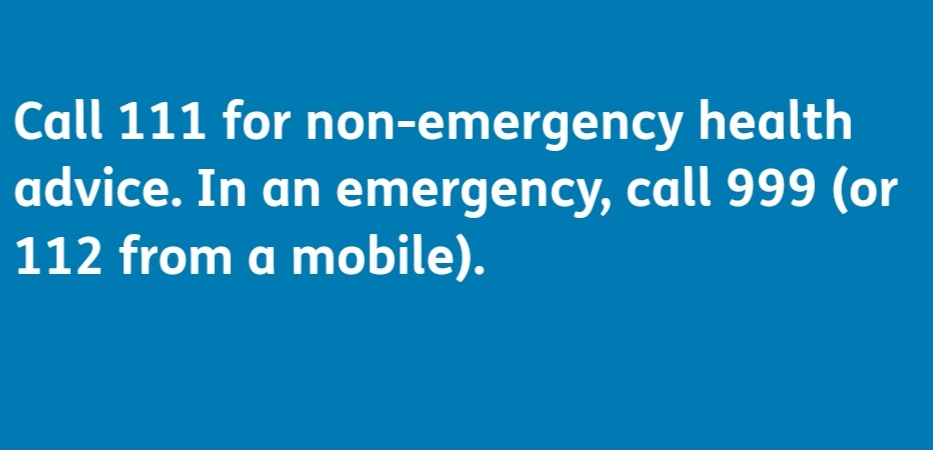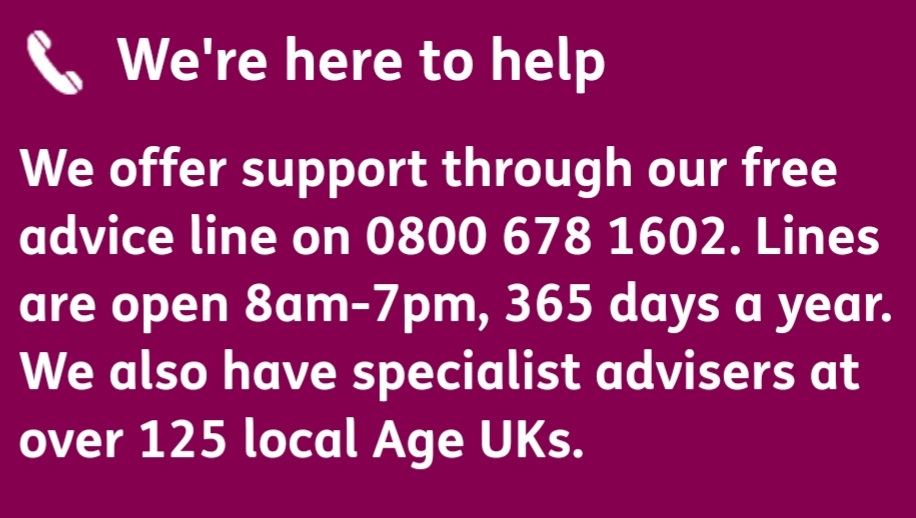Changes to our bodies as we get older mean that cold weather and winter bugs affect us more than they used to. This winter, we know we’ll need to live with coronavirus as well as other respiratory viruses.
WHAT YOU CAN DO:
As we age, our immune systems become weaker and less able to fight off viruses. We gradually lose the muscle mass that helps us keep warm and moving about. And the cold makes health conditions harder to manage – it can even affect our hearts and circulation. The good news is that there’s lots we can do to help keep ourselves well in winter.
KEEP MOVING
Try not to sit still for more than an hour at a time. Even a little bit of activity now and then can help you maintain strength and mobility.This can be easier said than done. You might well have found that you’re not feeling as fit as you did before the coronavirus pandemic started – if so, you’re not alone. Lots of us are finding things we used to do less easy. The important thing is to do what you’re comfortable with and build up slowly. If you’re not sure where to start, or you have a long-term condition that makes moving more difficult, our being active pages have advice and tips, as well as some simple home-based exercises you can add to your daily routine. Some people experience frailty as they age, which can make it more difficult to move around, and winter illnesses can have much more of an impact. But there are ways to build resilience.
EAT WELL
Spending more time indoors and doing fewer of the things we enjoy means it can be difficult to keep up the motivation to prepare meals. But it’s good to try and keep to a routine. If you’ve recently lost weight without meaning to, or if you have a smaller appetite than usual, find out why this might be and what might help. The main thing to remember is that it’s better to eat a bit of what you fancy – even if it’s just a slice of cake – than to eat nothing. It’s a good idea to keep your cupboards stocked with some basics just in case you can’t get out to the shops – whether due to illness or bad weather.
GET YOUR WINTER VACCINATIONS
– even if you’re fighting fit. This winter, respiratory viruses are expected to be more widespread, as we were less exposed to them during the coronavirus lockdowns. So it’s especially important to get your vaccinations this year. Those aged 50 and over are eligible for a COVID-19 booster jab. It’s not too late to have your first jabs, either, if you haven’t yet. You’re entitled to a free flu jab from the doctor or pharmacist if: you’re aged 50 or over, you care for someone, such as a friend or family member, you have a serious long-term health condition, you live in the same house as someone who is immunocompromised. When you get your flu jab, check if you’re also eligible for the pneumo vaccine, which helps protect you from pneumonia, and the Shingles vaccine. MAKE SURE YOUR HOME IS WARM ENOUGHT
Try to heat your home to a steady and comfortable temperature throughout the day. Close the curtains at dusk to help keep heat in. It’s a good idea to keep your bedroom window closed at night when the weather is at its coldest. If you’re having trouble with the costs of heating your home, we have information to help. Stop the spread of germs. As well as getting vaccinated, there are some other simple measures we can take to reduce the spread of illness – which is especially important this year. Regularly washing your hands with soap and water is one of the best ways to stop germs spreading. It’s a good idea to keep some antibacterial gel with you when you’re out and about, too. You can also:catch coughs and sneezes in a tissue, wear a face covering in busy indoor spaces, like shops leave windows ajar to let fresh air circulate, when meeting people indoors, avoid close contact with people who are unwell. Wrap up well and stay stocked up. Wearing plenty of layers is the best way to keep warm in winter. If you’re heading out, make sure you take some extra layers, even if you don’t need them immediately – the temperature can drop significantly when the sun goes in. Our top tips can help you keep your hands and feet warm.
It’s a good idea to stock up on cold and sore throat remedies, too. Your pharmacist can give you advice on what might help if you’re feeling under the weather. The cold puts more pressure on our hearts and circulation, the cold can increase the risk of a stroke or heart attack, as well as hypothermia. If you suspect yourself, or someone else, is experiencing any of these, call 999 (or 112 from a mobile) immediately.
For a stroke, think FAST:
F – is the face drooping on one side?
A – can the person raise both arms and keep them there?
S – is speech slurred?
T – time to call 999 if you spot any one of these signs.
Many people experience severe chest pain during a heart attack – but the symptoms can be different for different people. Hypothermia is a medical emergency, just like a stroke or a heart attack.


For more information from Age UK, visit their website: https://www.ageuk.org.uk/
For the Facebook page of your Bridlington branch: https://www.facebook.com/ageukpromenadebridlington/















